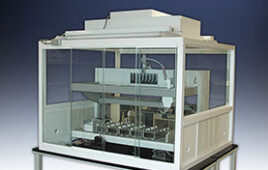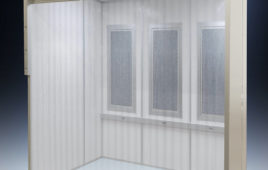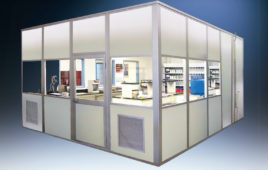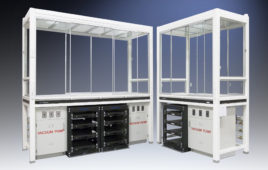A DECADE OR MORE AGO, I knew contract cleaning as a workaround, a way for a firm to have their parts cleaned with hazardous solvents so they could reap that benefit but not have to deal with the issues associated with those hazards. Today, contract cleaning (CC) is specialized outsourcing. This column is about why you might want to outsource this function, what choices you have, and what you should expect.
Google Me Up Scotty!
If you search Google on “contract cleaning,” you’ll learn about janitorial, office, maintenance, or outdoor facility cleaning. When you add the word “cleanroom,” to that search string, you’ll learn more about the topic in this column, whenyou further add the word “precision,” you’ll learn still more.
Who Does Contract Cleaning, and Why?
Suppliers of this service are of two types:
• Those who do CC because that’s what they do, and
• Those who do CC because they can
The former have adopted CC as their business mission It’s all they do. They probably practice CC in niche applications such as medical instruments (autoclaves), aerospace, cleanrooms, laboratory glassware, oily screws, polymer-handling equipment (spinnerettes), and even lighting for cleanrooms.
The latter produce goods which can do cleaning work (chemicals and/or equipment). They see CC as a way to spread the word about their wares, and produce incremental impact to their bottom line through sale of services.
Do you care with which type you work with? I think you may:
- If you seek the absolute lowest cost or are concerned about cross-contamination or inventory control, you probably want a supplier who sees CC as their only business.
- If you cleaning application is unique, you probably want a supplier most expert in the technology used to fulfill your unique requirements.
But, no matter whom you select, what you are paying for is cleaning performance, and certification of that performance.
The Market for CC
In the U.S., there are at least four or five dozen firms, and maybe more that provide CC. Like suppliers of equipment, service providers of CC are relatively small firms who tend to service either, an industry, a region, or both. Annual revenues of these firms range from a few million to tens of millions. This author’s guess is that the U.S. revenues from CC are at between five to ten percent of the total revenues for all commercial cleaning business equipment and supplies. Nearly all work is done via drop-shipments arranged and paidfor by the client (you).
What Can You Expect?
Your check list for selection of a service provided of CC should include atleast the following:
- On-site production of quality utilities (DI water), dry N2, etc.), and certification of that quality.
- Appropriate facilities (soft wall ISO Class 6 or ISO Class 4 room with appropriate entry/exit procedures and garb, etc.) including facilities for inspection and preparation.
- Experience and approval with the test protocol of significance to you (lEST 1246, LeVel 50A/10, or similar), OR your belief in their ability to become certified with your cleaning protocol supported by training and auditing/validation by your firm.
- Appropriate procedures for tracking of orders, avoiding cross-contamination, identification of goods, etc.
- Legal acceptance of the responsibility and liability for safe , handling and RCRA (Resource Conservation and Recovery Act)-compliant disposal of the soil removed from your parts.
- A price which will initiate internal inquiries about why cleaning should be done in-house by your firm.
Trust, but Verify
If you’re responsible for an auditing program to support cleaning work done in-house the same should be true with CC. If you would make a site visit before purchase of cleaning facilities and equipment, you should also do so for aservice provider of CC.
The Bottom Line
If your firm decides on CC, it should be because it positively impacts the bottom line. This can occur because of: training you don’t have to manage; facilities you don’t have to purchase and maintain; or liability you don’t have to assume. But it can also include: loss of an opportunity to add value; responsibility to a customer which you have delegated to a CC; or direct controlyou don’t have. That’s always the choice regarding outsourcing.
Note: The author appreciates the advice and support of Jerry Knepper and others in preparing this article.
John Durkee is an independent consultant specializing in critical cleaning for contamination control Author of the forthcoming book Management of Industrial Cleaning Technology and Processes, to be published in 2006 by Elsevier (ISBN 0-0804-48887). Contact him at PO Box 847, Hunt, TX 78024 or 122 Ridge Rd West, Hunt, TX 78024; 979417-7707;Fax 612-677-3170; or [email protected]




